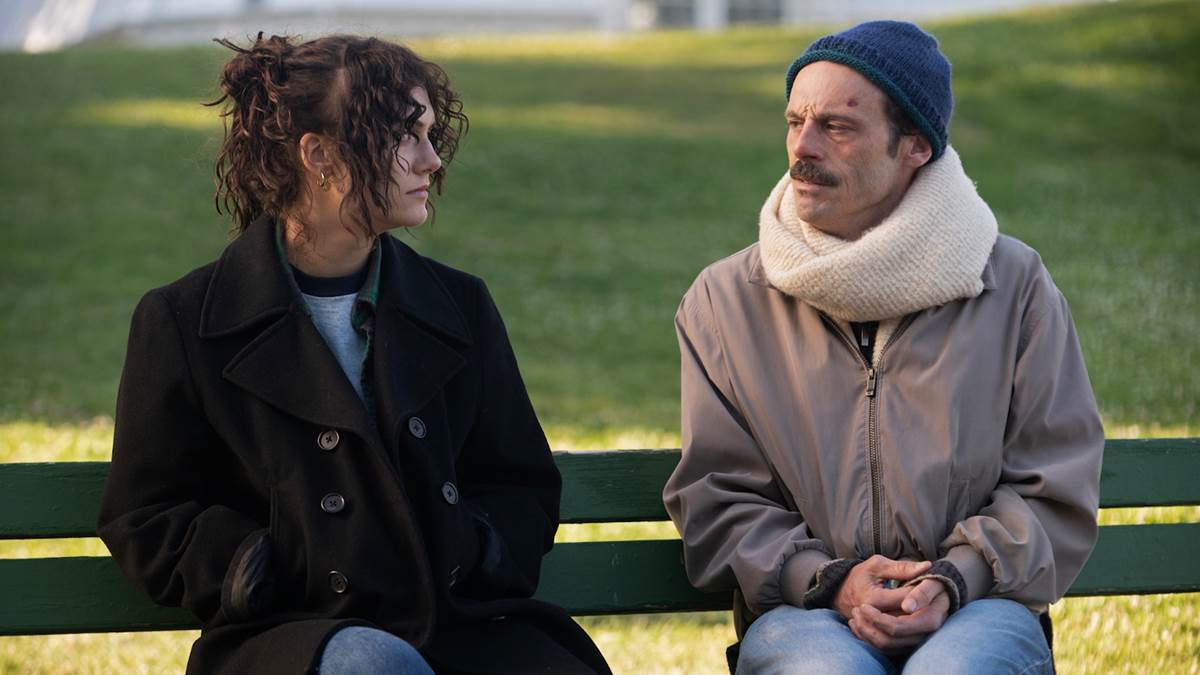Honoring its source material with devout faithfulness, Fairyland is yet another queer film about trauma. As the mainstream film landscape finally starts to open up to the concept of same-sex romantic comedies, Sundance rekindles the flame of films like Brokeback Mountain that pushed the envelope in their time, but now feel dated. The difference here is that Fairyland isn’t really about a gay man, but the life of a child of one.
Based on the true story depicted in Alysia Abbott’s 2013 novel Fairyland: A Memoir of My Father, the film is split into two parts. The first half follows young Alysia (Nessa Dougherty) after her mother unexpectedly passes away. Her poet father, Steve Abbott (Scoot McNairy, Lyle, Lyle Crocodile), uproots them and moves to San Francisco, where Alysia is exposed to a risque lifestyle as an impressionable youth. Without a steady income and trying on a new lifestyle, Alysia grows up through a series of apartments and with a revolving door of her dad’s boyfriends and conquests.
The second part of the film jumps forward in time to Alysia’s teenage years where she is played by Emilia Jones (Coda and another Sundance entry this year, Cat Person). As her father navigates a series of short relationships, including one with Charlie (Adam Lambert), Alysia works towards finding a way out. She gets as far away from her father as possible, starting college in New York City and continuing on to a scholarship in Paris. But the AIDS pandemic forces her back to San Francisco to provide end-of-life care for her dying father.
Set between the 1970s and early ‘90s, Fairyland uses archival footage of San Francisco and headlines to set the time. Anita Bryant’s “Save Our Children” campaign and the assassination of Harvey Milk are two examples of moments that date jumps in time that otherwise aren’t indicated. The young Alysia scenes were filmed in 8 mm and use low camera angles to view the world from a child’s eyes, while the grown Alysia scenes are filmed digitally. There’s an artistic thoughtfulness to the cinematographic approach that is easy to appreciate as a viewer.
Fairyland was adapted by first-time director Andrew Durham, who grew up in San Francisco in the same era as Alysia Abbott and was also the child of a gay father who died of AIDS-related illness. You get the sense that making the film was therapeutic for him, but it’s hard to relate to the character of Steve, which is the film’s fatal flaw. Geena Davis plays Alysia’s maternal grandmother, representing a “Get Out of Jail Free” card to a better life for her granddaughter. Steve’s refusal to take her up on the offer while acknowledging that he’s not providing the best life for his child is hard to watch. There’s intended closure at the end, a moment of forgiveness between daughter and dying father, but nothing about Fairyland does anything to destigmatize anything about being queer. In a country where LGBTQ+ rights are in danger, a film about a latchkey kid with a single gay father feels poorly timed.
Filmed around San Francisco with support from American Zoetrope and producer Sofia Coppola, Fairyland feels almost toxic towards the minority community that has made the city a safe haven for queer people. The straight, linear nature of the narrative feels more like a biography than a piece of cinema. Perhaps a non-linear approach to the story could’ve made Steve a more sympathetic character, but he ultimately comes across as selfish. Alysia, in contrast, feels selfless. And in the end, she simply returns to the life she built for herself, leaving you feeling empty and hollow.
Overall, the approach to Fairyland feels irresponsible and destined to do more harm than good. It’s a story about a child who survives in spite of her gay father’s carefree, party-hard lifestyle. She doesn’t abandon him in his time of need, despite the fact that he more or less let her raise herself. And the message you’re left with is… open to your interpretation, but likely not a positive representation of queer parenthood. Still, the performances are powerful, and you can tell that all involved thought they were doing something virtuous, in spite of the end result.
I give Fairyland 2 out of 5 stars.

